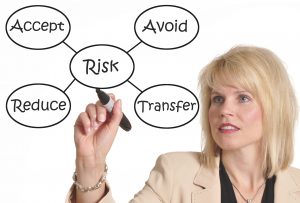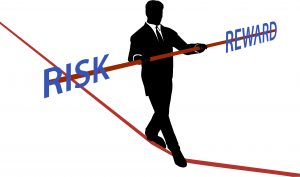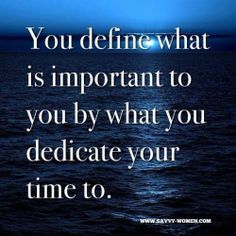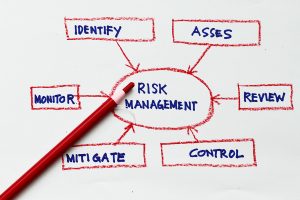 This may be the most important article you read this year, this decade… because this article may inspire you to become a professional at living, instead of remaining a rank amateur… aka bumbling idiot.
This may be the most important article you read this year, this decade… because this article may inspire you to become a professional at living, instead of remaining a rank amateur… aka bumbling idiot.
Risk Management
You have two options. You need to choose. You need to choose the option that has the lower cost to your reproductive success if it turns out to be wrong.
Now, I suspect, that almost none of us think about cost in terms of reproductive success, but according to evolutionary psychology, you are a mere vehicle to your genes, your genes are only interested in making copies of themselves, i.e. reproduce, and make your particular genes more dominant in the gene pool.
Which means, every choice is fraught with risk. The risk of increasing or decreasing your reproductive success.
 Now, you see, that fear is therefore a useful emotion: it warns you that you need to look, and calculate the different outcomes.
Now, you see, that fear is therefore a useful emotion: it warns you that you need to look, and calculate the different outcomes.
But no one has taught you to think. No one has taught you logic. No one has taught you to create a model in your head.
Therefore there are choices that are automatic, like a knee jerk reaction… it means you didn’t look before you leaped, only the 10000 year old mind did…
… and there are choices you don’t know what to do with, so you stall, you wait, until the pressure is too big, and then you jump… often into an empty pool.
 The difference between rank amateurs and professionals is risk management.
The difference between rank amateurs and professionals is risk management.
Rank amateur: rank means stinky. Amateur means dilettante. Clueless.
Professional means having some level of understanding, and skill developed. It can go from zero to 100…
The 67 steps program is most useful in this regard: distinguishing where you are a rank amateur, clueless.
It doesn’t tell you how to get from zero to 100. You learn that from books and courses, and mentors… through osmosis.
But until you can see that you are clueless, you won’t have a reason to learn…
The life of a rank amateur is perilous if you are the hasty type, or dead, if you are the scaredy-cat type.
Until you take a detailed attentive look at what you know, what level of professionalism you are in what area of life, everything that you learn is relatively useless. You are also arrogant: clueless people who can’t see that they are clueless, are the most arrogant of all.
You can do the 67 steps as a way to beat yourself up. And you can do the 67 steps as the best thing that can happen: celebrating morning… after a long night.
I confess, I am a beginner in even thinking “risk management”. I have been a bumbling idiot.
I always thought that was something that corporations did… that it had something to do with natural disasters.
From the Evolutionary Psychology book I just read, I see that I was clueless and most of my losses can be explained by me never considering doing risk assessment.
According to evolutionary psychology, the cost of making a mistake is measured in its effect on your reproductive success.
Having more money, being healthy, being well liked or held in high esteem all increase your chances for reproductive success.
The opposite of those increase your chances to become a reproductive failure.
Reproductive failure includes not being able to provide to your offspring so they too can be a reproductive success. So if you are an economic failure, your child will be too. If you are not healthy, your child won’t be either.
Now, I really cannot teach you how to evaluate the risk, because I am just learning myself, I am just learning the distinction myself, but I see a few commonalities, among my current and past students, that are definitely detrimental to your reproductive success.
Here is an article I started this morning. It was a half-baked idea, until I was able to see how it fits with the topic of risk management and reproductive success.
Yesterday one of my students had a breakthrough.
He read my last article, and somehow, through osmosis, got that it is not necessary to know what you are going to say, or write, it is important to open your mouth.
Many of you, I suppose, still think that your level of self-confidence is an indicator of how successful your next step is going to be.
If it your level of self-confidence is high, you’ll make it, if it isn’t, you plan to hold off taking a step until it is.
Others act as if they could not fail, and make mistakes after mistakes.
Now, making mistakes is OK, but if the mistake comes from a “I can do anything, watch me” attitude, then the mistake is the attitude, the other mistakes are just better than death which you probably earned many times over.
People, certain soul correction, make it a point to do this, act without thinking, without looking, because they have a glitch in their self-evaluation…
But I call it simply stupid… stupid action…
They aren’t able, or aren’t willing to look, and do the mental work necessary to evaluate the potential success or failure of a step.
Hasty is stupid.
Another way to be hasty and stupid is to not evaluate people… and be screwed over. Bet on wrong people.
It’s all about tolerance. How well you tolerate tension, ambivalence.
Tension is a phenomenon of two polarities: the bigger the difference the bigger the tension.
Acting/not acting, love/hate, trust/distrust, hungry/afraid.
Whether you are going to have a good life, take actions, the right actions at the right time, purposeful, diligent, deliberate, largely depends on your capacity to hold tension.
One of the hallmarks of no-success is reactiveness, hastiness, or violence.
Violence is anything where the action is the result of no ability to hold tension.
Lightening is violent. Killing someone is violent. Making hasty actions is violent.
Violence is not possible if the person takes time to look before they leap. Really look.
I am not saying that violence doesn’t make sense, I am saying that violence is not intelligent.
But waiting for self-confidence, waiting for everything to be completely built in your head isn’t intelligent either.
So what is intelligent?
You have an inner or outer pressure to act.
Some choices are irreversible and hard to correct. Others, like writing an article, are very easy to correct.
You can write it and choose not to publish, you choose to write until it make sense, until you do more research or more looking.
Waiting until you are ready means: you didn’t even get into the game. You chose a life of quiet desperation…
The choice is almost always between acting or not acting.
One choice increases your chances for reproductive success (the good life) and the other decreases your chances.
With practice you may go from rank amateur to a professional.
To living life as if you had a manual.
It’s impossible to create a manual that would work for seven billion people, but it is possible to create a navigational tool, a principle, that allows you to avoid the major pitfalls in life and live in a way that you could call the good life.
Everyone has a different level of affinity to risk. I like risk. Calculated risk.
In my calculation what is important to me weighs more heavily than money. For me, being on the cutting edge, discovery, seeing what thus far has been invisible is more important than to you. No wonder that I am a total reproductive failure: I have no offspring.
You know what’s important to you. Because without knowing yourself, you are a fish out of water.
 If you want to know what’s important to you, look at your life thus far: unconsciously you have always chosen what’s important to you.
If you want to know what’s important to you, look at your life thus far: unconsciously you have always chosen what’s important to you.
You don’t like it? You chose being small, insignificant, complaining, a failure, a moron?
There must be something that you have hoped to get out of it… with regards to your reproductive success.
You don’t like it any more? You can set your eyes higher… but please make sure you look at the risks.
If your husband married you because you are a cowardly person… suddenly choosing to be brave, may make him leave you and seek dominance elsewhere. And this applies to all risk management… think, look, calculate. Get intelligent.
Start becoming a professional human, instead of a rank amateur.
Your first step, I suggest, is to enroll in the 67 step coaching program: the 67 steps by Tai plus my coaching. Priceless.
Read the original article: Making choices: are you a rank amateur?
